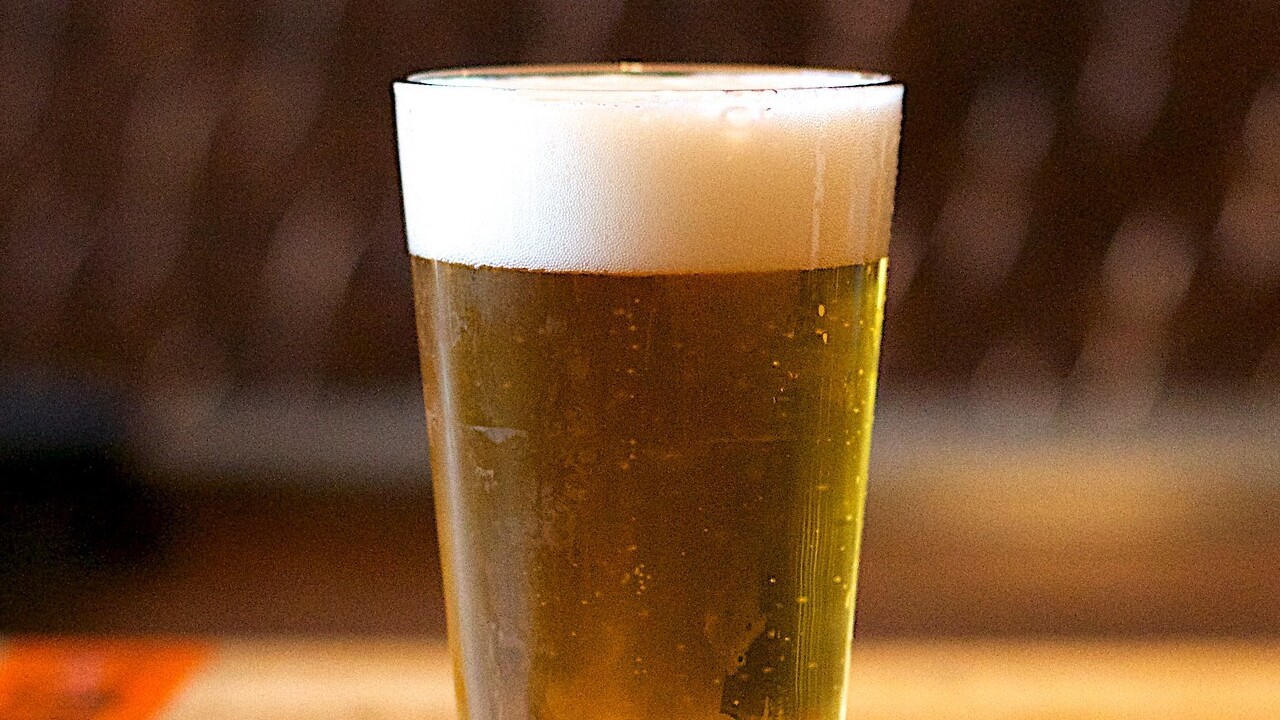Jim Caruso, CEO of Flying Dog Brewery, calls his business a “First Amendment brewery.” That’s because he keeps going to court to defend beer labels.
It started in 1995, when Colorado’s Liquor Commission objected to the label, “Good Beer, No S—.”
Bureaucrats told him, “Pull the beer from the market, or we suspend your license,” he says in my new video. That could have put him out of business.
I tell Caruso, “I’m glad we get to say ‘s—‘ in this interview, but I can see why the regulators didn’t want the word.”
“Want free speech?” Caruso responds, “you have to respect that in others.”
After four years of litigation, Colorado’s Supreme Court overruled the liquor commission, ruling that “no s—” is free speech.
Then Michigan’s liquor commission banned another Caruso beer, “Raging B—-” (remember, it’s “Flying Dog” brewery).
The bureaucrats said the label was “detrimental to the health, safety and welfare of the general public.” They told Caruso, “Oprah doesn’t use the word on her show.”
Oprah?
Michigan police ordered him to pull Raging B—- from the shelves, or they’d confiscate it.
Caruso went to court again.
“Do you really want to live in a country where government bureaucrats, based on whim and personal preference, can censor whatever they don’t like?” asks Caruso. “Movies, books, music lyrics, news stories?”
“No,” I respond. “But I wouldn’t want to fight over a beer name. What do you care? Change the name of the beer.”
“All of these battles are fought at the margin. That’s where everything controversial is,” responds Caruso. “By the time you’re defending something mainstream, it’s too late.”
After six more years in court, he won again. The court said, “Banning a label for vulgarity violates the First Amendment.”
You’d think the bureaucrats would have known that, since the federal government already approved Caruso’s beers. In fact, every brewer in America must first submit every label to a federal bureaucracy called the Alcohol and Tobacco Tax and Trade Bureau.
Which makes me wonder: Why does every state need separate regulation?
I suspect the answer is: Bureaucrats want jobs, and politicians are eager to waste our money.
On top of the feds’ hundreds of pages of rules, Caruso complains: “Every state has its own regulations. I think Maryland is 300-some pages, single-spaced. … The cost and time for compliance is onerous.”
This year, North Carolina’s Alcoholic Beverage Control Commission rejected another Caruso beer, “Freezin’ Season.”
The label depicts a cartoon figure in front of a fire. It might be a naked man … or not. If you squint at it, one tiny line might represent a penis.
Oh, no! Who will save us? North Carolina’s BEEReaucrats!
They told Caruso it is “inappropriate” to expose children to that image and cited: “Rule 15b 1003-3(2),” which prohibits labels that are “undignified, immodest or in bad taste.”
Bureaucrats love writing lines like “Rule 15b 1003-3(2).” North Carolina had already rejected more than 300 other beer labels — such as “Polygamy Porter,” “Beergasm” and “Hedonism.”
Most rejected breweries then usually just sell their banned beers in other states, but Caruso sues. Good for him for spending his own money to defend a principle.
Days before his first court hearing, North Carolina suddenly approved his beer, saying their change of heart “rendered the case moot.”
But Caruso pursued his litigation anyway, saying: “It’s not about one beer label. It’s about striking down an unconstitutional law!”
He also pointed out, “If it was to protect the children before, and now they’ve lifted the ban, they’re either sacrificing children at the altar of evading a preliminary hearing, or they’re just full of s—.”
North Carolina’s liquor commission wouldn’t agree to an interview.
PHOTO: Beer Actor. Photo by Alan Levine. Attribution 2.0 Generic (CC BY 2.0).
John Stossel is author of "No They Can't! Why Government Fails -- But Individuals Succeed." For other Creators Syndicate writers and cartoonists, visit www.creators.com.






